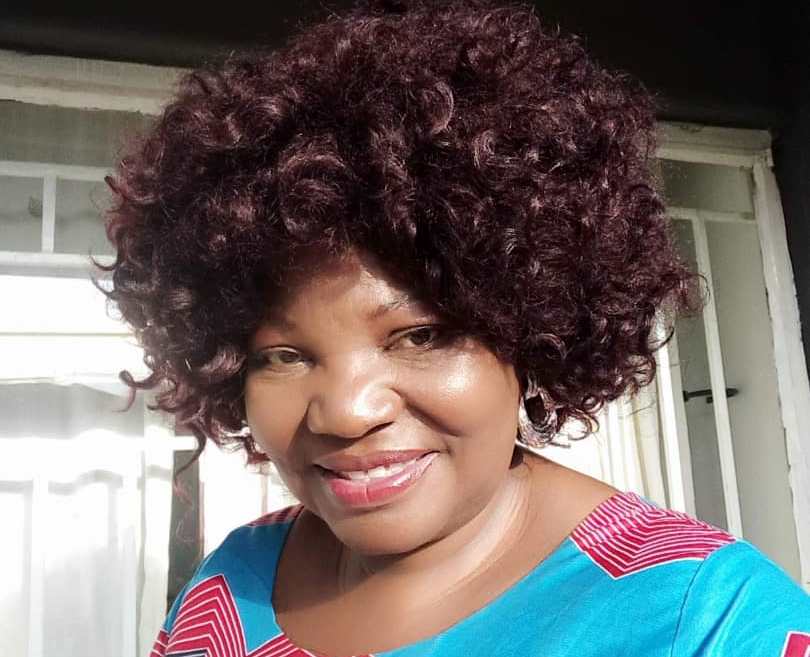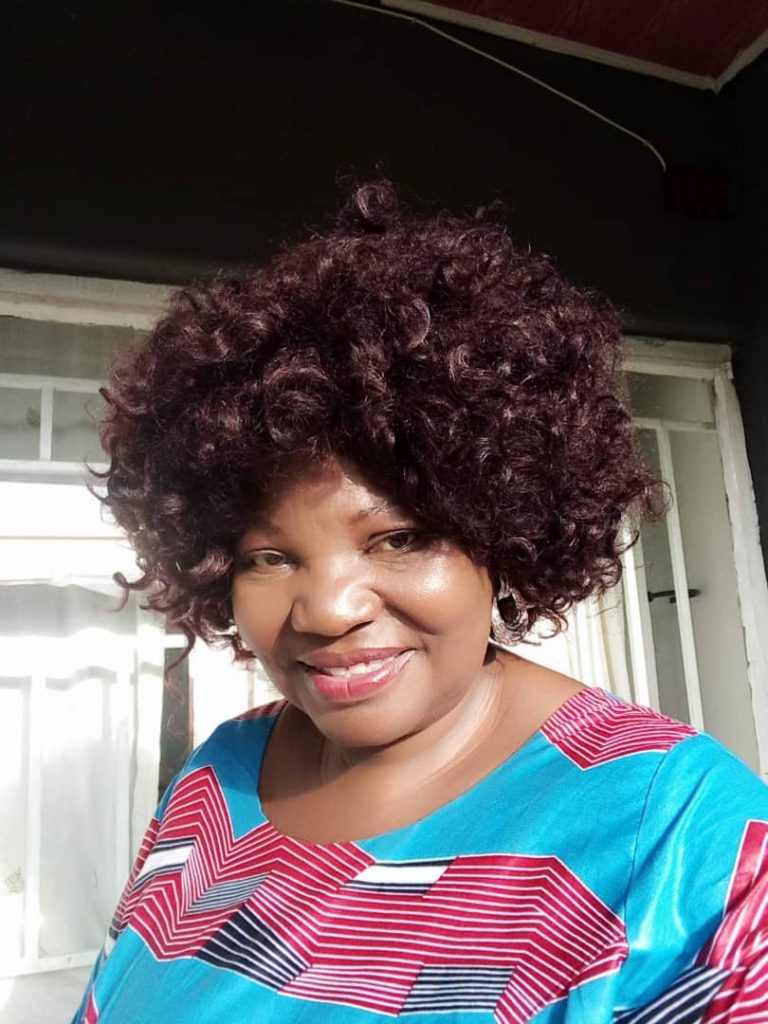
One of the women who have dedicated their lives to environmental protection in Africa is Zambia- born Mailes Muke Zulu, founder of Save the Environment and People Agency (SEPA), a Non-Governmental Organization that promotes sustainable livelihoods, environmental protection and human rights. In 2004, Mailes worked with rural communities in Zambezi to establish two community schools which offer education to the less privileged children. She also worked tirelessly using her own resources to raise awareness on environmental protection and the need to plant trees to protect the Zambezi River source. Her action drew commendation from Zambians because it is most significant River in Zambia. Zambia derives its name from Zambezi.
Mailes has been travelling to rural communities, training women in gardening, bee keeping, goat and pig rearing, fish farming and crafts production to help sustain their livelihoods whilst conserving the environment. For many years, she managed SEPA with no external funding until 2010 when Civil Society Environment Fund-CSEF provided technical support in developing SEPAs strategic plan and provided capacity building in project management. Later SEPA partnered with Staffenauti Construction Company in tree planting. In 2015, Small Grants Program- Global Environment Facility-GEF supported by UNDP provided SEPA with a grant to implement community projects and through commitment and dedication SEPA received funding support from OXFAM in 2019 .Thesame year Irish Aid recognized her efforts in empowering rural women and they awarded her with a grant and vehicle to support her work.
Currently, Mailes represents Zambian Women in Environment on the Southern African Development Community (SADC) Green Wall Initiative, the African Women Innovative Sustainable Environment and she is the first Zambian Woman in Environment to sit on the United Nations Environment Governing Council as an observer.
The environmentalist and human rights advocate in this interview with Sunday Oyinloye, Publisher Green Savannah Diplomatic Cable speaks about her passion and concern for the environment , what African leaders should do to protect the environment and other issues relating to women and human rights.
Excerpts:
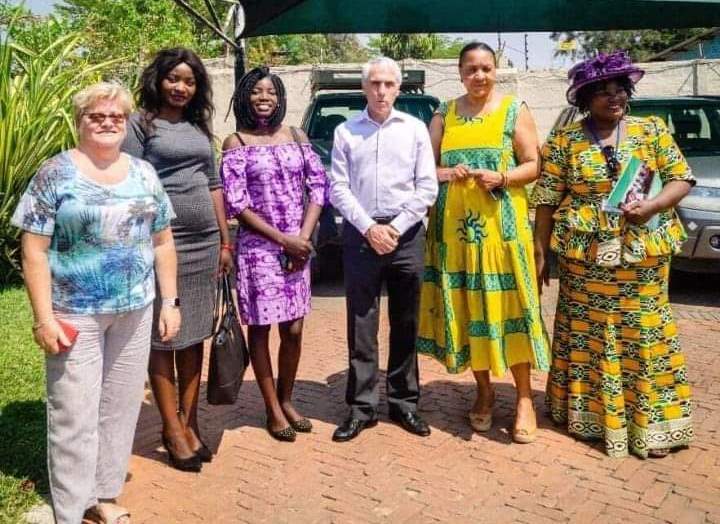
Are your concerned about the environment in Zambia?
Yes, I am concerned
Why?
Because environment is life, without the environment, human beings, plants and animals cannot live
Does that suggests that the environment is not well protected in your country?
I will say it is not, talking generally; we are not doing much to protect the environment. The reason is that all what we do under the earth is environment, businesses such as water, energy, mining, agriculture, construction , everything has to do with the environment, so it’s like we are focusing much on what we are getting from the earth than paying back. The focus has been what are we going to get from mining, what are we going to get from the river, what are we going to get from timber,, what are we going to get from agriculture, but we are not giving attention to paying back to the mother earth.
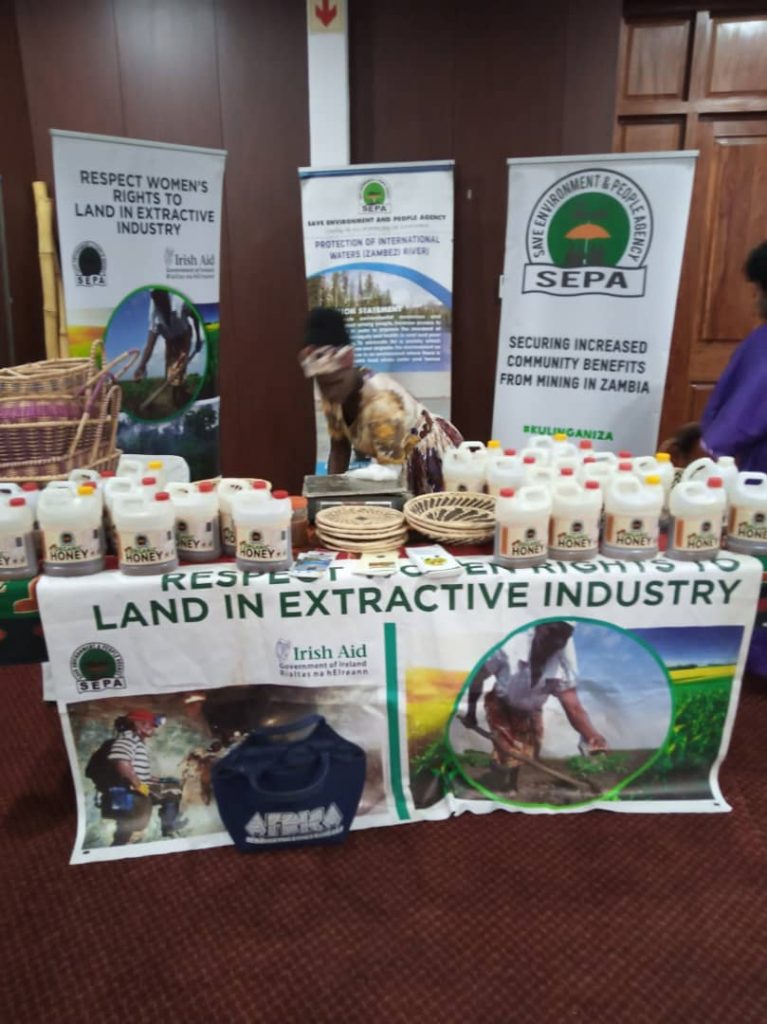
You have been raising awareness for planting of trees to protect Zambezi River, what prompted you to do that?
Zambezi River is one of the greatest rivers we have in Southern Africa. It starts from my province here in Zambia and goes through Zimbabwe, Mozambique, Angola, that way to Indian Ocean. So what is happening around Zambezi River can affect all these countries. For instance, people who live at the bank are cutting the trees. The water is used for other livelihood like transportation and fishing, so looking at the way people are tampering with it, we had to protect the river
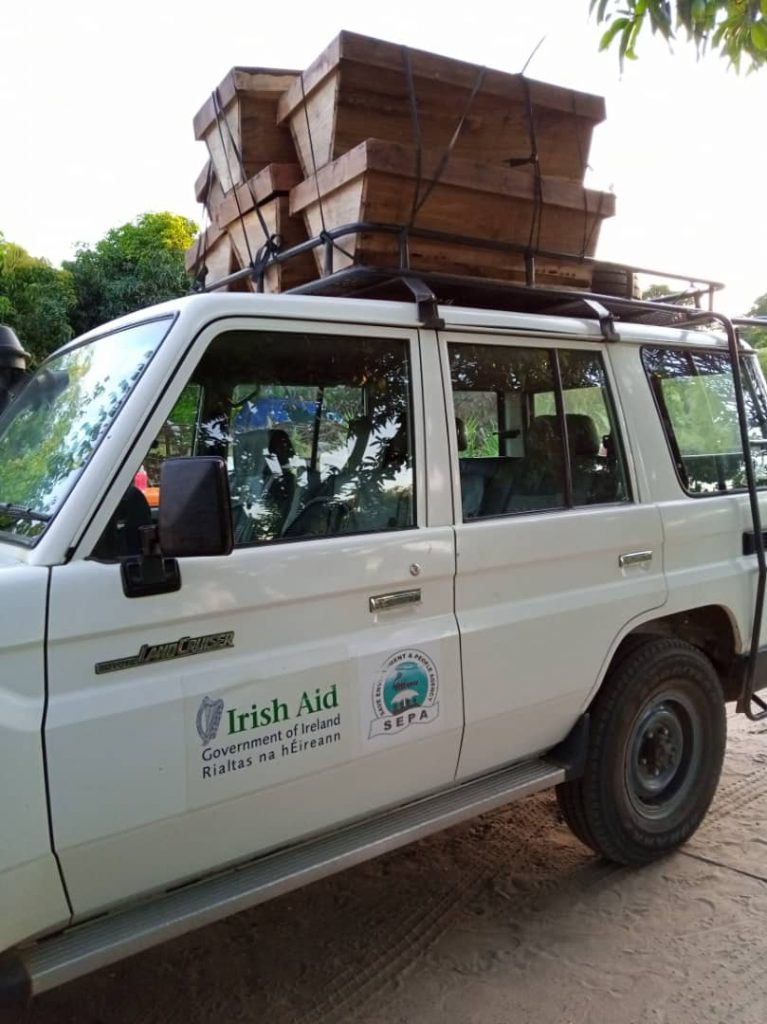
So you have been planting trees there?
Yes, we are replacing the trees that were cut
You are the first Zambia woman in Environment to sit in the United Nations Environmental Governing Council as an observer, what does that means to you?
It is a great achievement to be recognized. You must be dealing with policies that speak to the problems on the ground, so for UN Environment to invite such organization as mine to be on that board, it is a very good strategy because those of us operating at the grassroots are the ones facing the environmental issues directly on daily basis. Therefore, we need to feed them with information on what we are seeing and how they can tackle the problems.
In 2004, you worked with rural communities in Zambezi to establish two community schools which offer education to the less privileged children, why did you embark on that rescue mission?
I did that because I believe that education is very important in one’s life. In the rural area where I am and where I started these schools, children walk kilometers without schools and we are talking about having quality education for all, how would the rural children have quality education, so I had to sell the idea to the communities. I sensitized them and after the sensitization about the importance of education, they saw the sense in it. By so doing we have even reduced the number of children that are married- off in the areas where we started community schools.
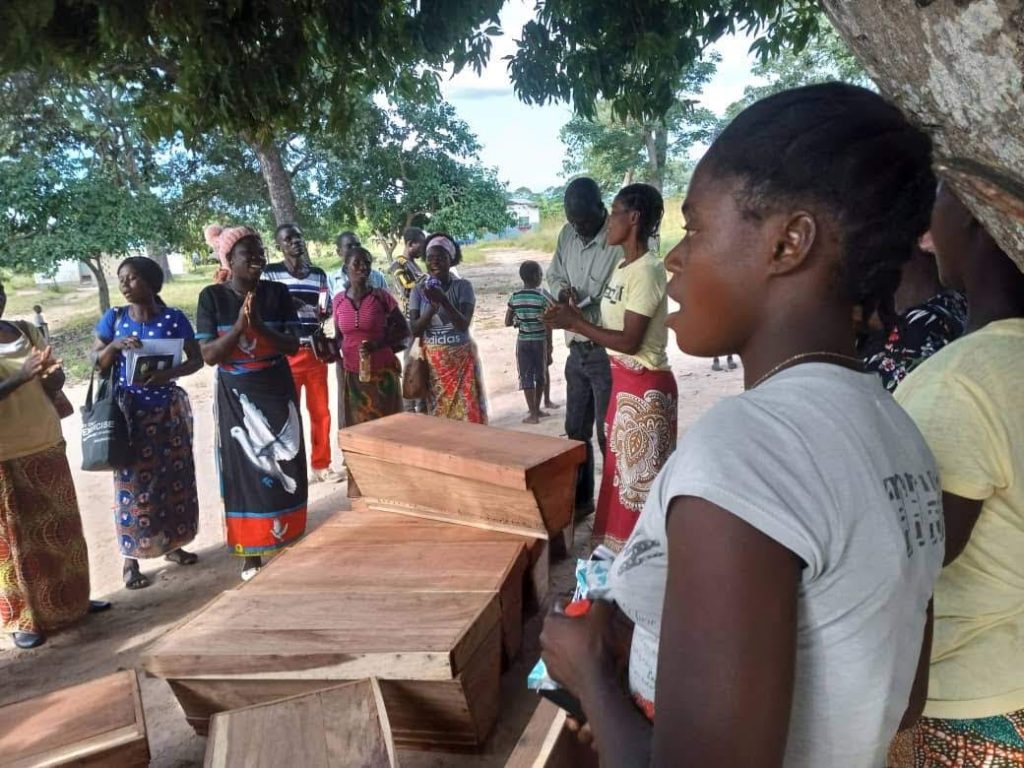
I want to ask you, how can African leaders motivate their people to protect the environment and what can they do as leaders to protect the environment?
What I have seen about African leaders Zambia inclusive is that, one, we lack technology. If they invest in technology like weather equipment, the metrological department will be able to forecast that, this year, such and such places will have this situation, the weather pattern will change, and they will inform Ministry of Agriculture and other ministries to prepare. For example, in my country, this year, we thought all would be well, but we had flood and many people were displaced, including their livestock and this is the same scenario in Kenya right now, there is flood. Why was it not predicted or was it that there were no preparations for the floods? The reason is because of low technology; therefore, African leaders need to invest in technology. Look at our brothers in Europe and America, they will predict that there will be flood; they will predict that there will be tornado and other disasters and start preparing the minds of their people and even moving them to safer areas, but in Africa, this is not done. I believe Africa has enough educated people that can man weather equipment, but we are not using them. It is the same educated Africans that are servicing the people in Europe and other places
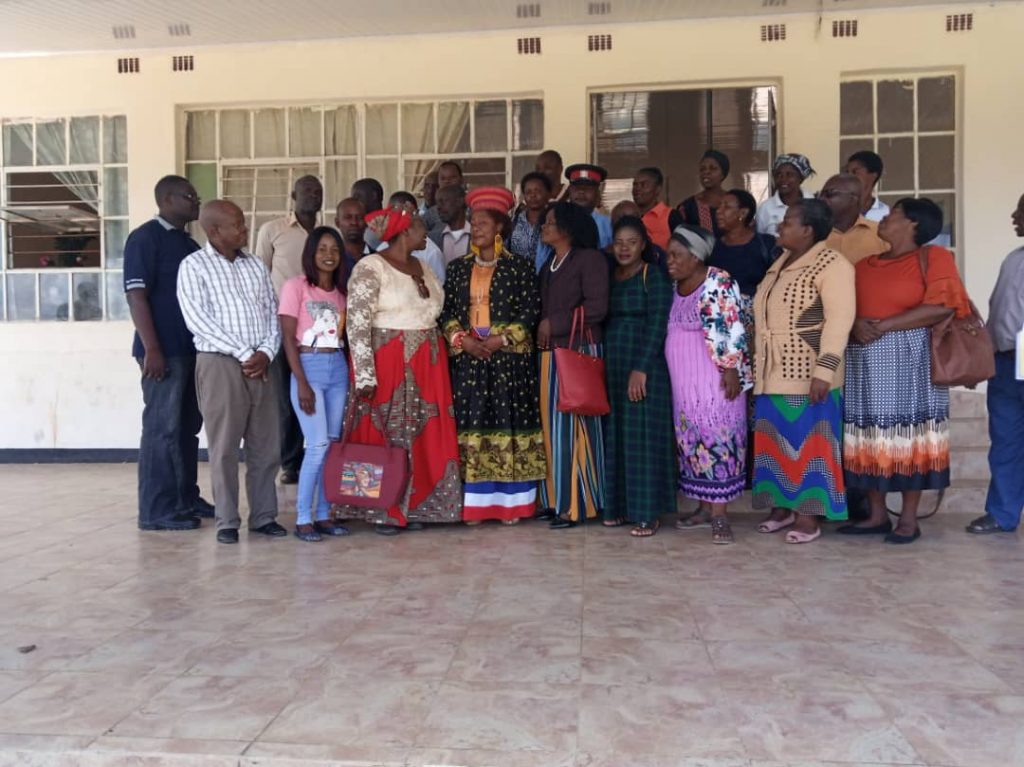
Apart from technology, which other strategies can they use?
Africa is endowed with forests and many natural resources; there is no need to depend on the forest for everything. In my country, and that is also what is happening in many African countries, people in the rural areas depend on charcoal or firewood for their cooking because they don’t have access to Green energy. Governments in Africa should invest in Green energy programmes so that we can protect our trees. The other issue is agriculture, how are we practicing agriculture, is there anything that we can do better? Again, what is happening to our timber, it keeps decreasing even though our students in rural areas sit on the floor to learn? Now, the question is where does this timber go and why can’t we do things properly? These are some of the issues. We need to protect our natural resources. Africa is not supposed to be as poor as it is because we have everything. People come here to get raw materials and turn those raw materials to finished products. Why don’t we have industries and manufacture with those raw materials in Africa?
If you look at the mining industry across Africa, especially the activities of the Chinese in that sector of the economy, what normally goes through your mind?
We don’t plan properly in Africa, we cannot see the future, and we cannot protect our own children, our ground children and great grandchildren. People come to Africa, dig the ground and go with the minerals. Africa ought to be united and plan well. For instance, we can say this region, you mine, another region, you can do Agriculture. That is better than mining at every district and in every country and at the end of the day, you have environmental issues. Kenya, got flood, Zambia got flood, what have we put in place in terms of harvesting water?. We still rely on engineers from China or Europe, the question is what are African engineers doing? Large numbers of them are in diaspora because of the un-conducive condition in the continent, so, if you create conducive environment for our people to return to Africa, I’m sure many of them will come back and develop the continent. What is the exit plan of these foreign miners who don’t even keep the money they get from African in our banks? What we see is land degradation and pollution of water. The question to ask is what happened when people were doing Environmental Impact Assessment? There must be a good public hearing when the mining companies are coming to do their mining in the community; they have to disclose the good things about the mining and also the negative effects on the community. The sad thing is that politicians in Africa will just come and tell the people that they would be employed by these mining companies without disclosing the negative effects on the environment and the people get excited. And for those who are already mining, let us look at the revenue sharing mechanism. The mining companies should set aside some resources that should remain in that particular community where mining activities are taking place, they have to say this percentage of money has to remain here for sustained development. Before mining, people were able to do a lot of activities, beekeeping, and farming but when mining come, what have is land degradation, so if all the countries in Africa can come up with revenue sharing mechanism, it will be for the good of the continent.
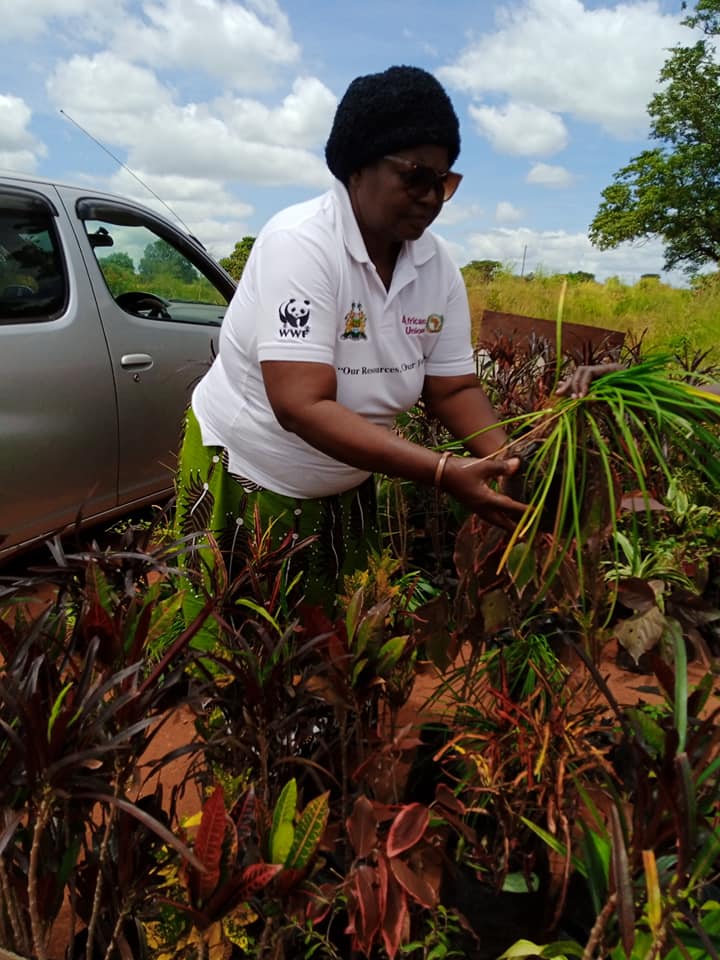
What are the challenges facing your NGO and in what areas do you need support?
We are in the rural area about 1000 kilometers to Lusaka, so finding resources and partners is quite difficult. That is why it took me ten years without any financial support because I operate from the rural area. So, what we are facing is lack of resources to reach out to many rural communities where these things are happening. We are also faced with the challenge of capacity building, we need it. Another issue has to do with staff. We cannot retain staff because we don’t have enough resources. We have good ideas because we are the ones on the ground. Support is needed for NGOs that are on the ground, those that are in rural areas, but not on the strength of big names probably because they are operating in cities. Some donors will say for you to access this money you need this or that amount dollars, where will an organization in the rural area get that? These are some of the challenges. There are so many things we can do for families as an NGO in the rural area, we can support the women in farming and other activities and the money will go to the community. Even our honey at the community level is very good but if you want to sell it in Europe, they will tell you ,why did you packaged it like this, they can even say its dirty, and this is the same food we eat . Instead of condemning us why not give us machinery that would help us?
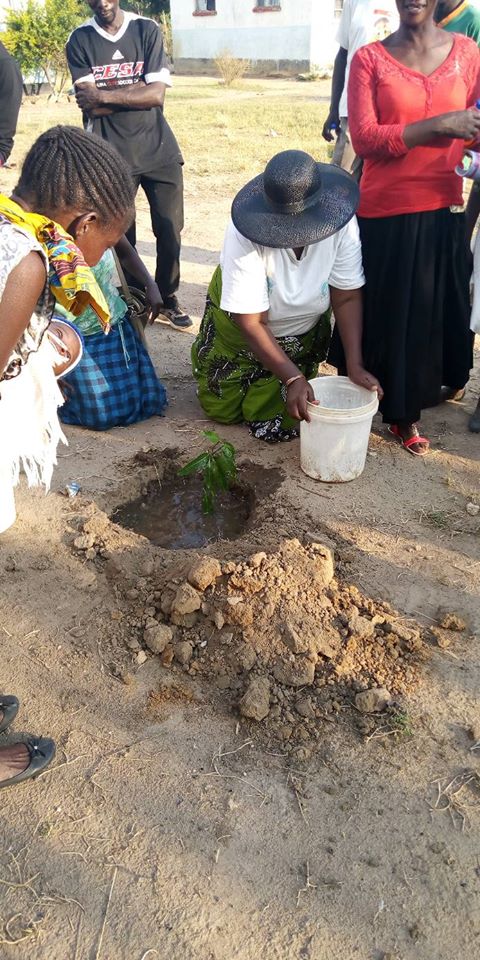
How would you react to increasing violence against women in Africa?
I am a woman; there is too much abuse of women in Africa. Any form of abuse on women is not acceptable because a woman is a life giver, a woman is a helper, a woman keeps the house. Whenever there is any problem, she will be the first to arrive and the last person to leave. When you go to hospitals you see women taking care of men but when a woman is sick, there is no one to take care of her or the husband will tell the wife to find her relative to come and stay with her. But when your husband is sick, you are expected to be by his bedside 24 hours.
In all your years of service to humanity, do you have a particular experience you will never forget?
I used to work long distance sometimes getting soaked in rain, or on horse cart, sometimes, it might hit the rock and then you fall down and the cart is on top of you. The reason why I made the sacrifice is because I didn’t want the people to suffer the way I suffered. Some of these people don’t know where to go or what to do, so I have to sacrifice to help them.
What is the greatest legacy you would want to leave behind as an environmentalist and human rights crusader?
The legacy I want to leave behind is to tell the people that if you don’t stand for your environment, your right to have a clean environment, then you are doomed. People will always oppress you. I have passed through many things people wanting to silence me, they want me and my organization to just disappear but I have endured that. What I have seen is that there is no mercy on earth, as long as someone is enjoying, he will not care about others. But what we are saying is that tell the world your problems, there are people out there who will always come to your aid. Some organizations have come to my aid Civil Society Environmental Fund, Global Environmental Facility supported by UNDP, Staffinauti, OXFAM, and Irish Aid. I appeal to other partners that money should be given to NGOs on the ground to implement projects rather that those that will travel for about a thousand kilometer to where the project will be implemented. That is a waste of resources. Let me give you a practical example as regards COVID-19. All those organisations that used to come and implement programmes and go are nowhere to be seen now, but we are here on ground, that is why donors should channel the funds to organisations that are on the ground..




